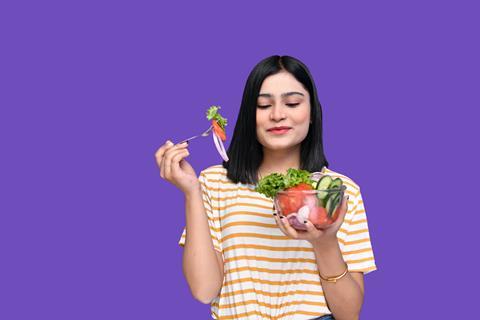Tanya Stead, chef, nutritionist, reflects on how her faith is shaping her decision to cut ultra-processed foods from her diet. Drawing on years in food production and a lifelong walk with God, she shares practical steps, biblical wisdom, and why stewarding our health honours the Creator.

I’ve begun cutting ultra-processed foods (UPFs) from my weekly shop, choosing to cook from scratch more often. It’s part of modelling a healthy relationship with food for my two young children and supporting my own wellbeing through bouts of anxiety and low moods. After more than a decade in nutrition, food production, and the food business, my approach is shifting…
I’ve been reading Ultra-Processed People by Chris van Tulleken (Penguin, 2024). According to Chris, Ultra-processed foods are industrially fabricated, chemically modified substances disguised as food - assembled from synthetic versions of food components and packed with additives.
READ MORE: While body positivity is important, clinical obesity is a disease – is weight-loss medication a healthy solution?
In Ultra-Processed People, Chris van Tulleken explores in depth just how harmful UPFs can be, and after reading his work, I’m convinced: these foods are not merely unhelpful - they’re actively damaging. I also have this conviction that we are called to worship God and, in doing so, to be faithful stewards of his creation. From that perspective, many - if not most - UPF products on shelves today hardly resemble anything in its original, God-created state.
READ MORE: Diets are overrated - here is what the Bible says about food and nutrition…
I have no problem with processing food to make it safe - pasteurised milk and eggs are good examples.
I have no problem with processing food to make it safe - pasteurised milk and eggs are good examples. But do we really need 16 ingredients in a loaf of bread? We’re told it’s to make it last longer, but who really benefits from that? Is it for our convenience, or to allow products to sit on supermarket shelves for weeks or months before being sold?
Science keeps pushing boundaries but there must be limits to how far we alter creation. While some advances, like prosthetics, clearly improve lives, can we trust that those driving AI technologies such as Neurolink have good intentions? Similarly, while food scientists and biotech researchers might be enthusiastic about new breakthroughs that reduce costs or boost profits for large corporations, more research into both short- and long-term health effects of these innovations is emerging every year.
READ MORE: For the love of food
That said, I recognise that ultra-processed foods (UPFs) cheaper and, for many in the UK, the only realistic option.
That said, I recognise that ultra-processed foods (UPFs) cheaper and, for many in the UK, the only realistic option. However, in many poorer countries, UPF products are considered a luxury. Why is it that, in economically poorer nations, natural food is more readily accessible, while in The West we’ve become reliant on over-processed alternatives? I’m also deeply aware of the malnutrition faced by many in developing nations due to food insecurity - a different issue entirely.
I believe we were never meant to over-process or alter the chemical and structural makeup of natural food ingredients to this extent. There is a balance to be found and we’ve tipped too far in the wrong direction. This shift has been driven by the pursuit of profit, fame, and corporate gain, rather than the wellbeing of people. Yes, choosing UPFs is detrimental to our health. But it would be foolish, and irresponsible, to suggest we cut out all UPFs entirely, especially considering current economic realities. In choosing wisely, we honour both our health and the beauty of God’s provision.
-
Cook at home: There’s a rise in ‘homesteading’ influencers on TikTok and Instagram. While some see it as cringey, I find it motivating - it recalls a time when we prepared and preserved food at home, without relying on supermarket products full of additives. It makes me wonder: is my need for convenience truly a product of modern life, or something sold to me by clever marketing? Philippians 2:14-15.
-
Learn: I now have more access to information than ever before. Where past generations learned home skills from family and friends, I can find endless guidance online. Digital content may not replace lived wisdom, but it removes the excuse of not knowing where to start. Proverbs 18:15 and Proverbs 13:20.
-
Pray and make God the centre: Above all, I seek God’s guidance, spending time in His Word to understand his purpose for me and my family. At each meal, we thank him for his provision and pray for its nourishment, reflecting on how I steward both his gifts and the body he’s given me. 2 Timothy 3:16-17.

































No comments yet